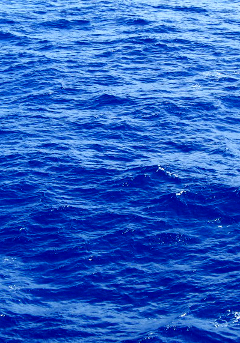Sea law sees new pollution
 The International Tribunal for the Law of the Sea (ITLOS) has issued a groundbreaking advisory opinion, affirming that greenhouse gas emissions constitute marine pollution under international law.
The International Tribunal for the Law of the Sea (ITLOS) has issued a groundbreaking advisory opinion, affirming that greenhouse gas emissions constitute marine pollution under international law.
The ruling represents a major victory for small island states that are acutely vulnerable to the impacts of climate change, particularly sea level rise.
In a landmark decision, ITLOS stated this week that emissions from fossil fuels and other greenhouse gases absorbed by the oceans qualify as marine pollution.
This ruling has critical implications for global climate policy, particularly for countries like Australia, which are also parties to the UN Convention on the Law of the Sea (UNCLOS).
The tribunal emphasised that adherence to the 2015 Paris Agreement's requirements is insufficient for protecting the marine environment, and that countries must now meet more stringent obligations to monitor and reduce their emissions.
“What happened today was that the law and science met together in this tribunal, and both won,” said Cheryl Bazard, Ambassador to the European Union from the Bahamas.
Small island nations, despite their minimal contributions to global greenhouse gas emissions, face some of the most severe risks from climate change.
These nations, including Antigua and Barbuda, Tuvalu, Palau, Niue, Vanuatu, St. Lucia, St. Vincent and Grenadines, and St. Kitts and Nevis, brought the case forward, highlighting their existential threat due to rising sea levels.
For Australia, this ruling could reflect broader climate obligations beyond existing commitments under the Paris Agreement.
Dr Constantinos Yiallourides, Senior Lecturer in International Law at Macquarie University, noted before the ruling; "If ITLOS clarifies these legal obligations, it would make an important contribution to international jurisprudence on global environmental protection and climate change”.
Australia, like other signatory nations, now faces increased pressure to adopt more comprehensive measures to reduce greenhouse gas emissions and protect the marine environment.
The ITLOS decision is expected to influence future climate litigation and advisory opinions from other international courts, including the Inter-American Court on Human Rights and the International Court of Justice.
Environmental advocates have hailed the ruling as a pivotal step in climate justice.
Mandi Mudarikwa, Head of Strategic Litigation at Amnesty International, highlighted the urgency of action.
“With global ocean temperatures the highest ever recorded, the harms that fossil fuel use and greenhouse gas emissions are causing to marine environments and people’s rights are ruinous,” Mudarikwa said.
China, the world's largest carbon emitter, had contested the tribunal's authority to issue such opinions, arguing it could fragment international law.
However, the ruling stands as a critical precedent, underscoring the necessity for immediate and robust action to mitigate climate change impacts on marine environments.
The tribunal's opinion, although advisory, establishes a clear legal framework for future climate actions and accountability, setting a higher bar for international environmental standards.








 Print
Print